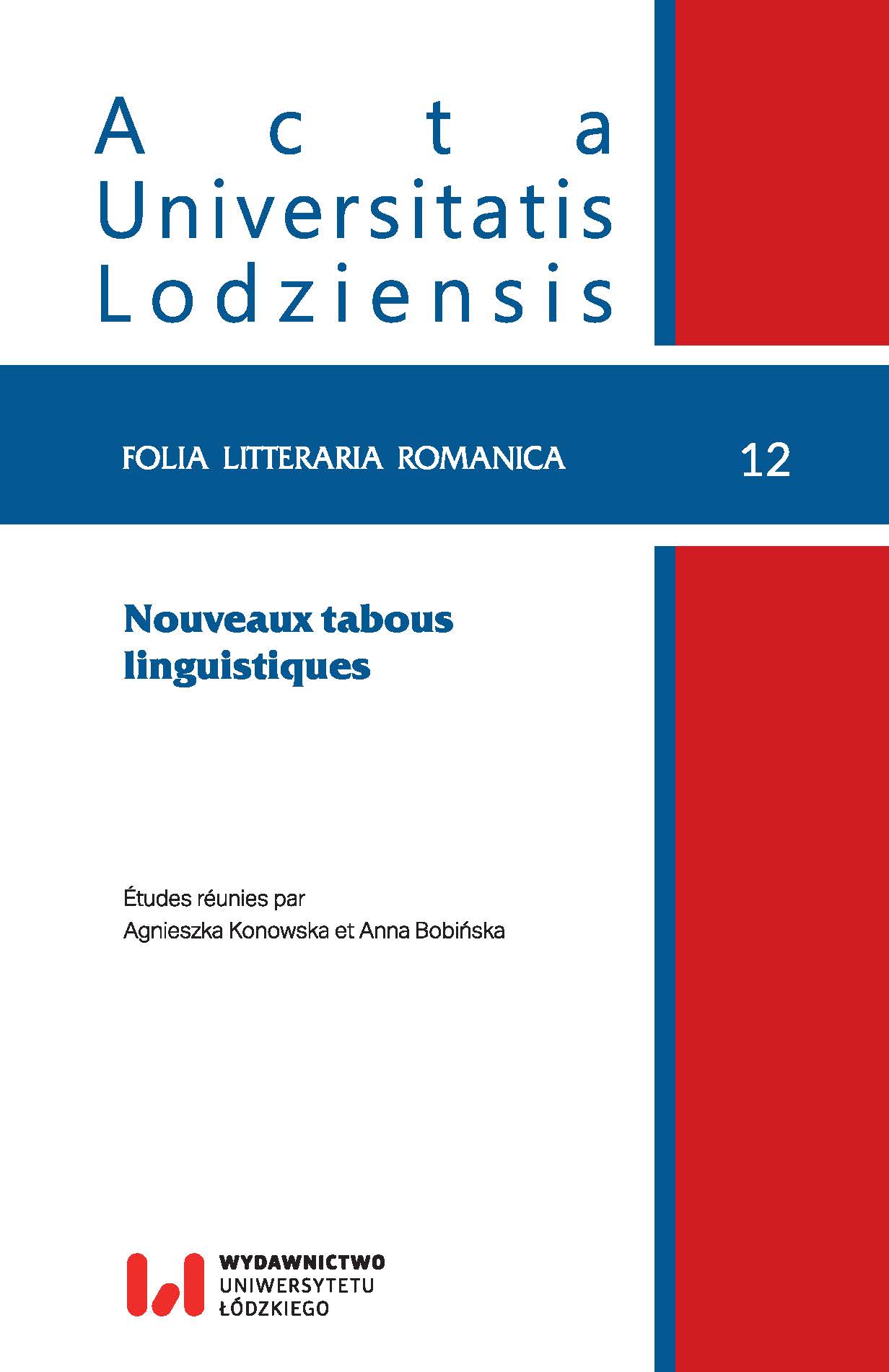The exhibition of taboos in the modern slang literature. The example of Alphonse Boudard
DOI:
https://doi.org/10.18778/1505-9065.12.22Keywords:
slang, dysphemy, euphemism, linguistic taboo, narrative productivity, neology, playful rhetoric, dissonant textualisation, transgressionAbstract
If slang always broke taboos, such a transgression evolved for some time with its development in the modern novels. Indeed, it does not any more restrict to put forward prohibitions banished by the good use, but it confers to them an aesthetic dimension in the process of the literary creation. We are interested in the transgressive reprocessing of taboos in the Alphonse Boudard’s representative work. On the one hand, we show that this one finds its themes in the exhibition of domains traditionally tabooed. On the other hand, we see how the transgression of taboos in Boudard arouses a strong narrative productivity and an innovative linguistic recycling. The latter concerns the complex relations between dysphemism and euphemism, the creation of neologisms which explore the limits of the language and a rhetoric playing with the linguistic prohibitions. These pratices lead to an appreciation of the tabooed terms and to the genesis of a writing itself without taboos.
Downloads
References
Allan Keith, Burridge Kate, Forbidden Words, Cambridge, Cambridge University Press, 2006
Google Scholar
Bakhtine Mikhaïl, L’OEuvre de François Rabelais et la culture populaire au Moyen Âge et sous la Renaissance, Paris, Gallimard, 1970
Google Scholar
Becker-Ho Alice, L’Essence du jargon, Paris, NRF-Gallimard, 1994
Google Scholar
Benveniste Émile, Problèmes de linguistique générale II, Paris, NRF-Gallimard, 1974
Google Scholar
Bonhomme Marc, « À peu-près structural et énonciatif dans le mot-valise », Le Français moderne, 2011, n° 1, p. 10–21
Google Scholar
Bonhomme Marc, Pragmatique des figures du discours, Paris, Champion, 2014 [2005]
Google Scholar
Bourdieu Pierre, Ce que parler veut dire, Paris, Fayard, 1982
Google Scholar
Bourdieu Pierre, La Distinction, Paris, Minuit, 1979
Google Scholar
Calvet Louis-Jean, L’Argot, Paris, PUF, « Que sais-je », 1994
Google Scholar
Carnoy Albert, La Science des mots, Louvain, Universitas, 1927
Google Scholar
Castiglione Baldassar, Le Livre du courtisan, Paris, Flammarion, 1999 [1528]
Google Scholar
Colin Jean-Paul, Mével Jean-Pierre, Dictionnaire de l’argot, Paris, Larousse, 1990
Google Scholar
Colin Jean-Paul, Argot et poésie. Essais sur la déviance lexicale, Besançon, Presses de l’Université de Franche-Comté, 2007
Google Scholar
Dauzat Albert, Les Argots, Paris, Delagrave, 1929
Google Scholar
François Geiger Denise, « Les argots », in Le Langage, éd. A. Martinet, Paris, NRF-Gallimard, « La Pléiade », 1968, p. 620–646
Google Scholar
Gadet Françoise, Le Français populaire, Paris, PUF, « Que sais-je », 1992
Google Scholar
George Ken, « La créativité lexicale dans les romans d’Alphonse Boudard », Cahiers de lexicologie, 1979, n° XXXIV, p. 53–60
Google Scholar
Guiraud Pierre, L’Argot, Paris, PUF « Que sais-je », 1976
Google Scholar
Lombroso Cesare, L’Homme criminel, Paris, Félix Alcan, 1887
Google Scholar
Merle Pierre, Argot, verlan et tchatches, Paris, Milan, 1997
Google Scholar
Niceforo Alfredo, Le Génie de l’argot, Paris, Mercure de France, 1912
Google Scholar
Rheims Maurice, Dictionnaire des mots sauvages, Paris, Larousse, 1969
Google Scholar
Rouayrenc Catherine, Les Gros Mots, Paris, PUF « Que sais-je », 1996
Google Scholar
Stein André, L’Écologie de l’argot ancien, Paris, Nizet, 1974
Google Scholar
Webster Jenny, « L’argot dans la littérature », Document de travail, Centre d’argotologie (Paris V-Sorbonne), 1991, n° XI–XII, p. 82–83
Google Scholar
Yaguello Marina, Les Mots et les femmes, Paris, Payot, 1987
Google Scholar
Downloads
Published
How to Cite
Issue
Section
License

This work is licensed under a Creative Commons Attribution-NonCommercial-NoDerivatives 4.0 International License.













